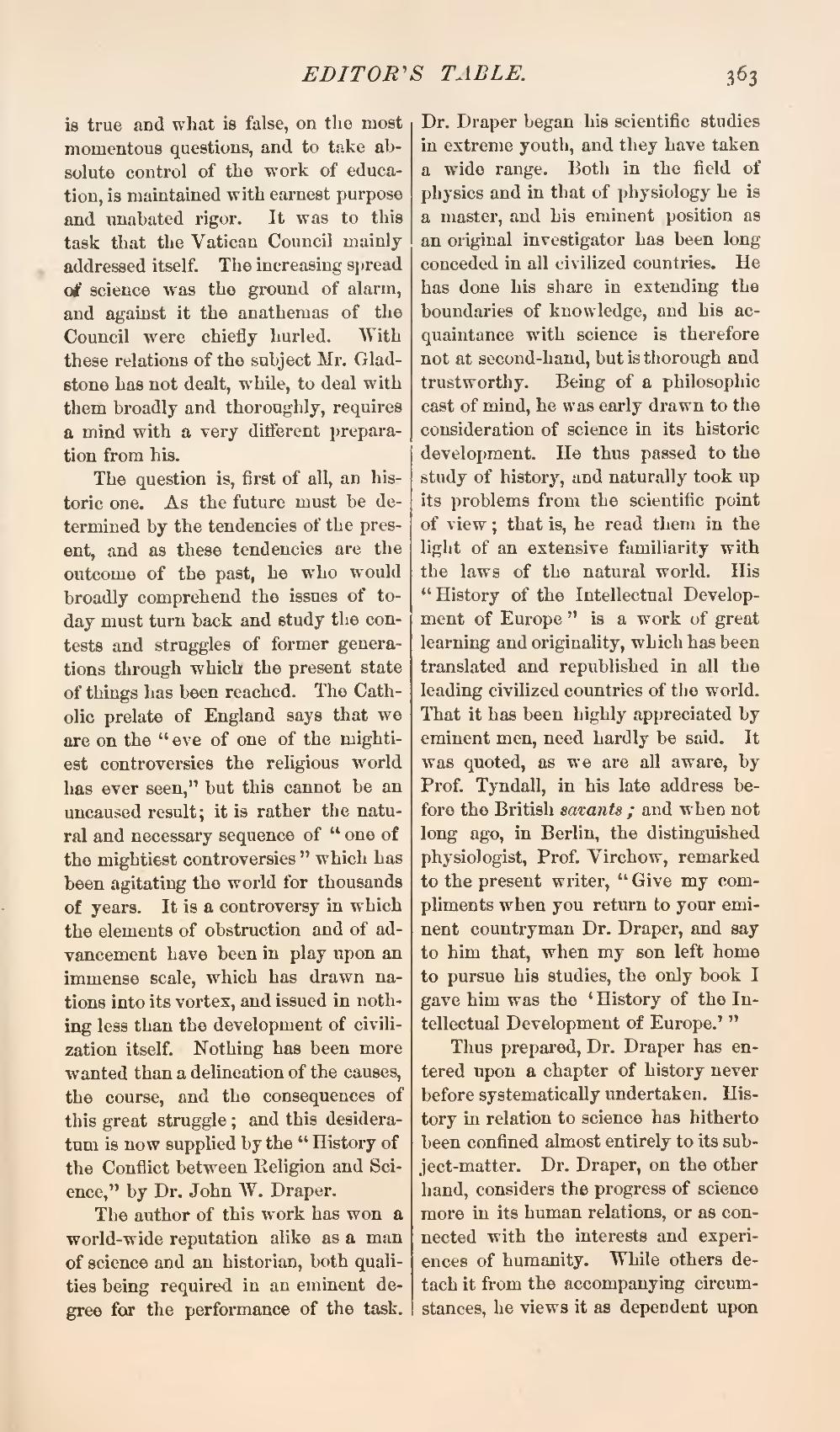is true and what is false, on the most momentous questions, and to take absolute control of the work of education, is maintained with earnest purpose and unabated rigor. It was to this task that the Vatican Council mainly addressed itself. The increasing spread of' science was the ground of alarm, and against it the anathemas of the Council were chiefly hurled. With these relations of the subject Mr. Gladstone has not dealt, while, to deal with them broadly and thoroughly, requires a mind with a very different preparation from his.
The question is, first of all, an historic one. As the future must be determined by the tendencies of the present, and as these tendencies are the outcome of the past, he who would broadly comprehend the issues of today must turn back and study the contests and struggles of former generations through which the present state of things has been reached. The Catholic prelate of England says that we are on the "eve of one of the mightiest controversies the religious world has ever seen," but this cannot be an uncaused result; it is rather the natural and necessary sequence of "one of the mightiest controversies" which has been agitating the world for thousands of years. It is a controversy in which the elements of obstruction and of advancement have been in play upon an immense scale, which has drawn nations into its vortex, and issued in nothing less than the development of civilization itself. Nothing has been more wanted than a delineation of the causes, the course, and the consequences of this great struggle; and this desideratum is now supplied by the "History of the Conflict between Religion and Science," by Dr. John W. Draper.
The author of this work has won a world-wide reputation alike as a man of science and an historian, both qualities being required in an eminent degree for the performance of the task. Dr. Draper began his scientific studies in extreme youth, and they have taken a wide range. Both in the field of physics and in that of physiology he is a master, and his eminent position as an original investigator has been long conceded in all civilized countries. He has done his share in extending the boundaries of knowledge, and his acquaintance with science is therefore not at second-hand, but is thorough and trustworthy. Being of a philosophic cast of mind, he was early drawn to the consideration of science in its historic development. He thus passed to the study of history, and naturally took up its problems from the scientific point of view; that is, he read them in the light of an extensive familiarity with the laws of the natural world. His "History of the Intellectual Development of Europe" is a work of great learning and originality, which has been translated and republished in all the leading civilized countries of the world. That it has been highly appreciated by eminent men, need hardly be said. It was quoted, as we are all aware, by Prof. Tyndall, in his late address before the British savants; and when not long ago, in Berlin, the distinguished physiologist, Prof. Virchow, remarked to the present writer, "Give my compliments when you return to your eminent countryman Dr. Draper, and say to him that, when my son left home to pursue his studies, the only book I gave him was the 'History of the Intellectual Development of Europe.'"
Thus prepared, Dr. Draper has entered upon a chapter of history never before systematically undertaken. History in relation to science has hitherto been confined almost entirely to its subject-matter. Dr. Draper, on the other hand, considers the progress of science more in its human relations, or as connected with the interests and experiences of humanity. While others detach it from the accompanying circumstances, he views it as dependent upon

